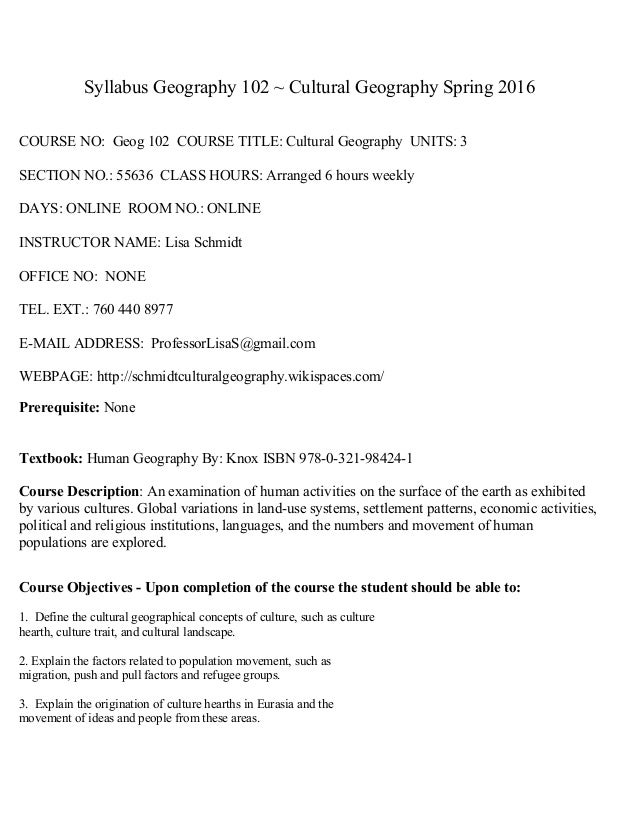Building a career in Geography is not an easy task as it covers some of the important elements of the environment as well as nature.
It takes a lot of effort and patience to succeed in a competitive exam like NET UGC Geography. Are you worried about your upcoming UGC NET Geography Exam? Are you thinking about the recent changes in the Exam UGC NET Geography Syllabus 2020 pattern?
Version 1 For examination in June and November 2020, 2021 and 2022. Also available for examination in March 2020, 2021 and 2022 for India only. UGC NET Syllabus for GEOGRAPHY The UGC NET exam would be computer-based like bank PO, SSC exam. Paper 2 will have 100 Multiple Choice Questions (MCQs) with each question carrying two (2) marks i.e. 200 marks in total. The objective type questions will include multiple choices, matching type, true/false and assertion-reasoning type etc.
You must relax because in this blog all your queries related to syllabus, study material, question paper, books, mock test, course, and exam pattern will be cleared.
- Here you can check all UGC NET Subjects
We have established a connection with the experts and they have shared some guidelines and we are going to present their valuable suggestions here in this blog. Please read all the sections with an attentive mind.
UGC NET Geography Syllabus 2019-2020
If you are aiming for UGC 2020 Geography then you must understand that there has not been any kind of modification in the syllabus.
The new UGC NET exam Geography Syllabus 2020 is almost like the last year’s UGC syllabus and a student can follow the previous year’s paper without any hesitation.
We have included the new syllabus (in English as well as in Hindi) here and you can check how much you have covered while you go through the syllabus.
Before starting a complete guide on UGC NET Syllabus 2020 for Geography, you should have an overview of the exam.
UGC NET 2020 June Exam Overview
Here you can check the UGC NET exam overview:
| Exam Name | University Grants Commission National Eligibility Test |
| Commonly known as | UGC NET Exam |
| Conducting Body | National Testing Agency (NTA) |
| Exam Level | National |
| Official Website | ugcnet.nta.nic.in |
| Periodicity | Twice in a year (June and December) |
| Conducted for | Junior Research Fellowship and Assistant Professorship |
| Mode of Exam | Computer-based Test (Online mode) |
| Medium | English or Hindi |
| NET Application fees | Gen – ₹1000, OBC/ EWS- ₹500, SC/ ST/ PwD/ Transgender – ₹250 |
| Release of UGC NET June 2020 Official Notification & online UGC NET 2020 application | 16th March, 2020 |
| Last day to fill the Application Form for NET Exam | April 16, 2020 |
| UGC NET 2020 June Exam Dates | June 15 – 20, 2020 |
| Release of UGC NET Result | July 5, 2020 |
| UGC NET Helpdesk | 8076535482, 7703859909 | ugcnet-nta@nic.in, queries.net.nta@gmail.com |
UGC NET 2020 June Exam Important Dates
Here you can check important dates for UGC NET 2020 June Exam
| Event | Dates |
| UGC NET Application Process | March 16, 2020 to April 16, 2020 (11:50 PM) |
| UGC NET Admit Card | May 15, 2020 |
| UGC NET Exam Dates | June 15 – 20, 2020 |
| UGC NET Results | July 5, 2020 |
Check out the UGC NET Geography Syllabus In English
The UGC NET Geography exam has two papers – Paper-I and Paper-II. In Paper-I your reasoning ability, comprehension, divergent thinking and general awareness will be tested. In Paper-II, the question will be based on your selected subject. All the questions of Paper-II will be compulsory.

Here is the important topics of Syllabus for UGC NET Geography Exam June 2020.
Subject: GEOGRAPHY
UNIT-I Geomorphology |
|
UNIT –II Climatology |
|
UNIT-III Oceanography |
|
UNIT –IV Geography of Environment |
|
UNIT –V Population and Settlement Geography |
|
Unit–VI:Geography of Economic Activities and Regional Development |
|
Unit – VII: Cultural, Social and Political Geography |
|
Unit VIII: Geographic Thought |
|
Unit IX: Geographical Techniques |
|
Unit – X: Geography of India |
|
UGC NET Geography Syllabus 2020 In Hindi
Here you can check the latest UGC NET Syllabus For Geography 2020 for Hindi Medium.
Other Important Subjects for UGC NET Exam
You should have enough study materials to boost your exam preparation for the NTA UGC NET exam.
Huawei k3765 usb driver download. Click on the link to access other Subjects related to the UGC NET exam.
UGC NET Geography Study Material PDF
It is necessary to organize study materials for your upcoming geography exam. A study material varies from one exam to the other and you must structure your study material according to your requirements before you start your preparation for the final exam.
While you shape your study materials you can ask all the possible questions related to your UGC 2020 NET Geography syllabus. Does your study material have the UGC NET Geography Answer Key 2019? Is your study material structured the way you want? If you want some clarity you can ask different types of questions to shape your study materials.
UGC NET Geography Question Paper
Collecting net geography question paper is a must before you think of appearing for UGC exam Geography NET. Some students think that this method is not that effective but it is just the opposite.
A question paper prepares you to face any question with ease and that is the beauty of arranging a geography question paper. You can download the geography net question paper here.

You can download the various UGC NET study materials from below.

Important UGC NET Geography Books
You will come across an endless number of suggestions while purchasing relevant books for NET Geography UGC but you must understand the various topics which are included in the Geography syllabus.
A book that covers all the important parts of the syllabus is believed to be a good book and this is one of the valuable suggestions you need to consider. Here are some books for your reference
UGC NET Geography Books | Author | Important Points About The Book |
UGC NET Geography | Shuchi Rastogi | Based on latest exam trends about 5500 chapter wise objective questions are given for self evaluation. In each chapter box is given which consists of important facts and information. Previous Year’s Questions & Model papers are given with answers for understanding the nature of the exam. |
NTA UGC NET JRF & SET Geography | Arihant Experts | More than 4000 objective questions are given for thorough practice The book includes previous year’s questions and 3 model paper as per the examination pattern for self evaluation. Various charts and diagrams are given which is very helpful for building concepts and for last minute revision before exam. |
Trueman’S UGC Net Geography | A. Magon and B.P. Panigrahi | Book consists of excellent theory and nicely explained. Chapter wise questions are given for better practice. All the chapters are covered in the book according to new pattern. Previously year’s papers are given with solutions. |
Geography of India | Majid Hussain | This book gives conceptual understanding of the topic Geography of India. Language used is simple and easy to understand. Tables, maps are given for better understanding. Good for information gathering purpose. |
UGC NET Geography (Paper II) Exam Guide | Indra Kumar Lal | According to the chapter practice questions in MCQ form are given with answers. Useful book before exam for reference and revision. Previously years solved papers & Model test papers are given for analysis. |
More Geography books for reference:
- UGC NET/JRF Geography Solved Papers Pratiyogita Sahitya
- UGC NET Geography Paper 2 by GKP
- Question bank Geography by DGP
- India and World Geography by Majid Hussain
- World Geography by Majid Hussain
- Geography by Barnwal
- UGC NET/JRF/SET Geography (Paper-II) by Rajeev R. Shrivastava
- Geography for UGC NET Previous Years Solved Papers by Atlantic Research Division
There are different coaching centers for students appearing for NET exams. A student has to stick to the one which has been recommended by many experts.
The teachers who are associated with a particular coaching center have years of experience and you need to find the right institute for your upcoming geography exam. So, geography coaching is something you cannot ignore.

Get ready for UGC Geography 2020 NET Mock test
New Geography Syllabus
You must be busy preparing for your upcoming geography exam and that is quite normal. Everyone does that and the way a student prepares for a UGC NET exam Geography makes all the difference.
One of the most reliable methods is sitting for UGC NET Mock test. Your performance in the UGC Geography exam NET is directly proportional to the number of mock tests you appear. Follow this simple method while concentrating on your upcoming exam.
Examine the Geography Course before appearing for UGC NET
A proper way to examine a geography net course is by going back to the basics. This is essential in order to sharpen your methods of preparation for your upcoming Net Geography exam.

Keep the Geography 2020 UGC NET syllabus handy for your own good. The study materials for your upcoming exam will also boost your way of examining the Geography Course.
UGC Geography Exam Pattern NET 2020
Knowing a pattern for the upcoming NET Geography exam is crucial for all the candidates and the students write all the important answers in the examination hall by following a particular pattern.
Your way of preparing must not be limited to a particular pattern because there is something more to it. The UGC NET Geography Cut Off is another thing that you need to remember. If a candidate fails to fulfill the criteria then he or she will be eliminated.
You can go through the expected category-wise and paper-wise qualifying marks (according to last year) from the given below table:
Category | Paper I (Max marks: 100) | Paper II (Max marks: 100) |
General category | 40 Marks 40% | 80 Marks 40 (40%) |
OBC (NCL)/PWD/ST/SC | 35 Marks 35% | 70 Marks (35%) |
Some of the important points for your upcoming geography exam are mentioned below. All the questions that you will face will be in the form of UGC NET Geography MCQ
Syllabus Geography Stage 6
- You will be asked a total of 150 questions NET (Paper 1: 50 Question and Paper 2: 100 Questions). All questions are compulsory to attempt.
- Paper I will consist of General Aptitude Questions and Paper-II will have questions related to the subject selected by candidates. M
- Hindi and English are the only options to attempt UGC NET. The choice for the paper medium can be exercised at the time of filling the form.
- There will be no negative marking in this exam and the total duration of the exam is3 hours.